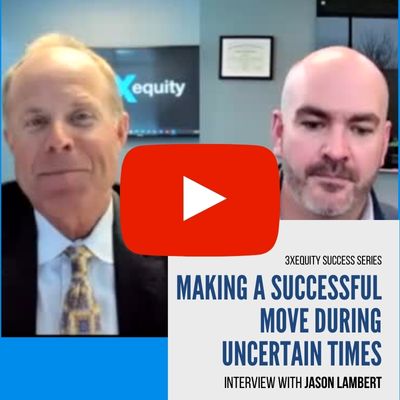- Key steps you need to address
- Define your unique narrative
- The rewards of preparation
We all reach a point when we start thinking about life after work and starting the next chapter of our life. For advisors, that often means selling your business. But, selling your business isn’t a simple task – it’s a journey that requires thorough preparation if you hope to get the biggest payout possible.
So, if you are currently considering selling, or see it coming on the horizon, take note.
Here are 10 key moves to make to be sure you get the most out of your life’s work.
1. Obtain a Practice Valuation – Completing a practice valuation helps advisors get an inside look on the true value of their practice and allows them to make any changes needed in their business model to allow for more effective negotiations when it comes time to sell. By not getting a formal valuation, advisors put a lot of money at risk and can find themselves with money left on the table. Practice valuations can also be key in helping you figure out the best time to sell your business.
2. Define the Why – For those thinking about selling, it’s important to know exactly why you’re selling and what you want out of life after retiring. Thinking through and writing down why you want to sell can help create the motivation needed to move forward. Additionally, many prospective buyers will want to know your motivation for selling before committing to going through the buying and selling process with you.
3. Express Your Story – You’ve put a lot of effort into getting your business where it is today, and it shows. That means you won’t want to hand it off to just anyone. Writing out your practice’s story, your own story, and the type of buyers you want for your business can go a long way in helping your find the right match.
4. Catalogue Business Services – Compile a list of any and all services that you subscribe to and include their contact information and the terms of service for each. This includes your phone service, internet provider and equipment leases, among others. This is a great thing to get out of the way early on and provides prospective buyers with an organized list that is easy to handle.
5. Record Your Deliverables – You want to look into the future and take note of what you still owe and when it is due before transitioning out of your practice. This will help you ensure that client-owed deliverables are completed and help you get a sense of what has been paid for or promised that still needs to be completed.
6. Note Upcoming Opportunities – Demonstrating that you have a robust sales funnel and are driving growth rate goes a very long way when it comes to pricing out your practice. You can help achieve this by listing out well-confirmed opportunities and other work that is ongoing with your existing client base. Be sure to highlight your process and include anything that might be in the works that has a high probability of occurring.
7. Create a Meeting Plan – At some point along the way, you’re going to need to talk to your clients about the upcoming sale of your business and what it means for them. Developing a strategy and narrative so you are fully prepared for client meetings can help you best explain the transition plan and process… and help ease any fears.
8. Deal with Attrition and Generational Risk – You want to do everything you can to mitigate perceived risk by the buyer and a great way to do so is to segment your client list, indicating which have generational planning and who is involved in it. Noting how generational clients are being addressed gives potential buyers more confidence in there being low client attrition with a sale.
9. List Out Big Expenses – Creating a detailed list of any and all major expenses, or going one step further and creating a P&L statement, can help give your buyer a better sense of what expenses they will be taking on after the purchase of the business. This includes things such as your office lease, staff compensation, and marketing costs.
10. Define Your Org Chart – Put together a staff overview document that includes the names of staff, their titles and duties, compensation, and a quick recommendation for how to retain them after the sale. A majority of buyers want to retain the employees of the selling firm and putting together a list helps them identify key personnel and see where everyone fits in in their new organization.
At 3xEquity, we understand that preparing for the sale of your business is critical and can profoundly influence the outcome of your future. Getting as much done in advance can help alleviate some of the stress of selling your life’s work, as well as helping you get the most for your business. If you’re looking to start the process today, we’re here to help.
Click here and get started on your comprehensive practice valuation today.




